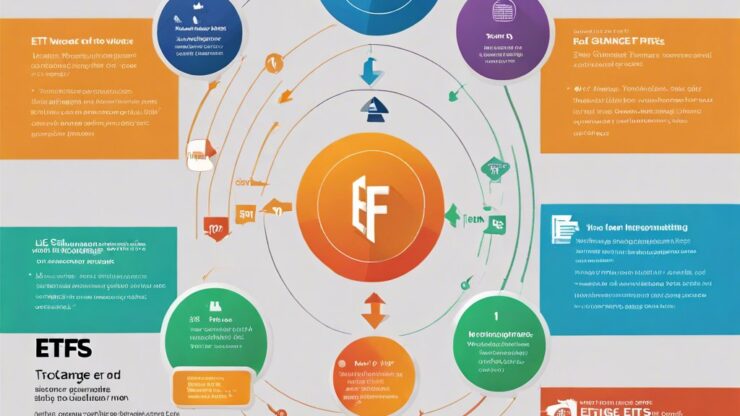What Are ETFs and Why Should You Care?
Welcome to the world of investing where Exchange-Traded Funds (ETFs) offer a unique blend of flexibility, diversification, and cost-effectiveness. For new investors, understanding what ETFs are can unlock a myriad of opportunities in the financial markets. Think of ETFs as baskets of various assets that you can buy or sell on stock exchanges, just like individual stocks. This feature allows for easy trading while providing exposure to a wide range of investments.
ETFs can include stocks, bonds, commodities, or other assets, making them an attractive option for those looking to build a diversified portfolio without the need to purchase each asset individually. With their growing popularity, it’s essential to grasp the basics of how they function.
Navigating the Types of ETFs
As a new investor, it’s crucial to recognize that not all ETFs are created equal. Different types of ETFs cater to various investment strategies and goals. Understanding these can help you align your investment choices with your financial objectives.
- Index ETFs: These track specific market indexes, such as the S&P 500, allowing you to invest in a broad market segment.
- Sector and Industry ETFs: These focus on specific sectors, like technology or healthcare, giving you targeted exposure to particular industries.
- Bond ETFs: Ideal for conservative investors, these focus on fixed-income securities and can provide regular income.
- International ETFs: These invest in foreign markets, providing geographical diversification.
- Thematic ETFs: These focus on specific trends or themes, such as renewable energy or artificial intelligence, offering a modern investment approach.
Why ETFs Are a Winning Choice for New Investors
Choosing to invest in ETFs can be a game-changer for newcomers in the financial landscape. Their unique advantages make them a preferred choice for many investors. A few key benefits include:
- Diversification: ETFs allow you to spread your investment across a variety of assets, reducing risk.
- Cost-Effectiveness: With lower fees compared to mutual funds, ETFs can enhance your investment returns over time.
- Flexibility: The ability to buy and sell ETFs throughout the trading day provides liquidity that traditional investments may lack.
- Transparency: Most ETFs disclose their holdings regularly, allowing you to know exactly what you own.
By understanding these fundamentals and types of ETFs, new investors can confidently navigate their investment journey. It’s time to embrace the opportunity that ETFs present and take the first step towards financial success.
Disclaimer
This article has been created or edited with the support of artificial intelligence and is for informational purposes only. The information provided should not be considered investment advice. Please seek the support of a professional advisor before making any investment decisions.






